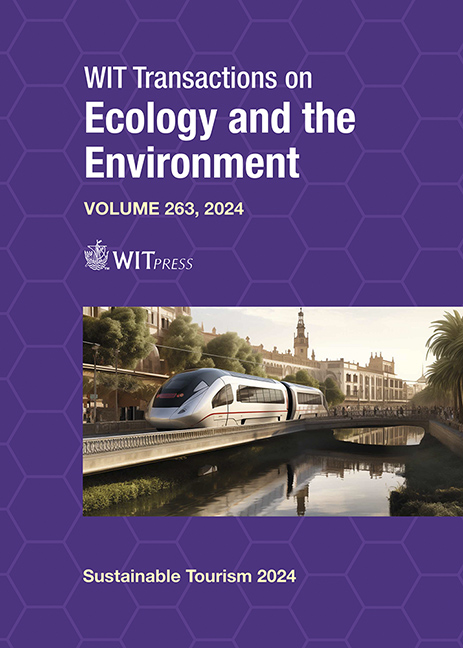USING AGRICULTURE TO IMPROVE AND INCREASE THE SUSTAINABLE TOURISM INDUSTRY IN IDAHO, USA
Price
Free (open access)
Transaction
Volume
263
Pages
13
Page Range
49 - 61
Published
2024
Paper DOI
10.2495/ST240051
Copyright
Author(s)
ROBERT L. MAHLER, NAV GHIMIRE, BRAD STOKES, IRIS MAYES
Abstract
Tourism is the third largest industry in Idaho, surpassed by only agriculture and technology, as it accounts for more than $4.8 billion in annual income. Over 84% of this income is generated by out-of-state visitors. The tourism industry is healthy and growing at an annual rate of 6%–8%. Idaho is known for its outdoor beauty, as eight of its 14 top tourist attractions are water-related. Even though agriculture is Idaho’s largest industry, it currently has little positive impact on tourism. The purpose of this paper is to determine the potential value of agriculture to Idaho’s sustainable tourism industry and to recommend a list of sustainable programmes that need to be developed or improved upon to ensure that agriculture is much more important to Idaho’s sustainable tourism future. Conversely, agriculture currently contributes little to tourism; however, its potential for the future is outstanding. A public survey developed for this study indicated that there is widespread support to develop sustainable agritourism in Idaho and that the public is receptive to the inclusion of wine/wineries, dairy products, farmers markets, potatoes/potato products and small farms in a sustainable tourism programme. Programmes are in the development phase to capitalise on unique Idaho commodities including farmer’s markets, sustainable small farms, the growing wine industry, specialty crops, agricultural diversity and the development of a historical agricultural heritage trail. Many of these resources are within 1 hour’s driving distance of over half of Idaho’s population and the state capital, Boise. The potential to use unique and sustainable agricultural commodities should be the basis for the expansion of sustainable agritourism in Idaho over the next 20 years.
Keywords
agricultural tourism, wine industry, water canals, farmers markets, agricultural diversity





